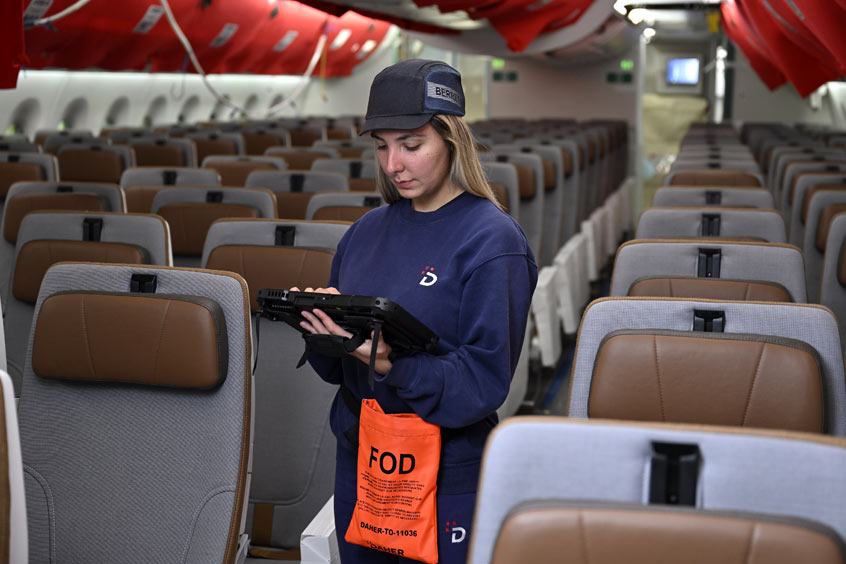PRESS RELEASE
Issued by: TU Delft Faculty of Aerospace Engineering
KLM CEO, Pieter Elbers and Prof. dr. dr. Henri Werij, Dean of the Faculty of Aerospace Engineering, TU Delft today signed a new collaboration project between KLM and TU Delft at the annual IATA congress aimed at making aviation more sustainable. KLM will contribute to the TU Delft research of an innovative aircraft concept, the so-called Flying V. It is a completely new approach to aircraft design and provides a glimpse into future sustainable long-distance flying.
This aircraft design, where the passenger cabin, cargo deck and fuel tanks are integrated into the wing, uses 20% less fuel than the Airbus A350, the most modern aircraft of today, due to a better aerodynamic shape and lower weight. In October a flying scale model and a segment of the full-size interior will be officially presented to the public during the KLM Experience Days at Schiphol. These days are organized on the occasion of the 100 th anniversary of KLM.
The aircraft was originally designed as a possible aircraft design for the future, but can be compared to the most advanced aircraft of today, the Airbus A350. Although the device is less long than an A350, it does have the same wingspan. As a result, the Flying-V makes trouble-free use of the current infrastructure at airports, such as gates and taxiways, and fits into the same hangar as the A350. The Flying-V also carries approximately the same number of passengers - 314 in the standard configuration - and the same amount of cargo, namely 160m 3. The Flying-V is smaller than the A350, which means that the resistance is lower.
KLM CEO Pieter Elbers :"In recent years, KLM has developed as a pioneer in sustainability in the aviation sector. The development of aviation has brought the world a lot, because it offers us the opportunity to connect people. This privilege comes with a great responsibility for our planet. KLM takes this very seriously and has therefore been investing in sustainability at various levels for years. We are proud of the progressive collaboration with TU Delft. This collaboration fits in well with KLM's strategy and is an important milestone for us in further upscaling towards sustainable aviation. "
Dean of the faculty of Aerospace Engineering TU Delft Henri Werij :"We are very happy that we can work together with our trusted partner KLM on our joint mission to make aviation more sustainable. Radically new and much more economical aircraft designs, such as the Flying-V, are important, but of course also new ways of propulsion. Our ultimate goal: emission-free flying. This collaboration with KLM offers a great opportunity to actually bring about change. "
Better passenger experience
The Flying-V also gives researchers a unique opportunity to improve the passenger experience in an aircraft, from the seat distribution in the wings to the design of the seats and toilets. Everything must be as light as possible to make the best possible use of the efficiency improvement of the new aircraft design. The comfort of the passengers is also considered.
Fuel versus electric propulsion
The Flying-V flies with the most energy-efficient jet engines on the market. In the current design, the Flying-V still flies on kerosene, but the aircraft can easily be adapted to innovations in the field of propulsion, such as electrically supported jet engines.
| Contact details from our directory: | |
| TU Delft Faculty of Aerospace Engineering | Research/Consulting Services, Technical/Eng/Scientific Studies, Airframer |
| Related aircraft programs: |
| TU Delft Flying V |
| Related directory sectors: |
| Design |
Weekly news by email:
See the latest Bulletin, and sign up free‑of‑charge for future editions.
VANTAGE launches European modular tactical drone project

Daher deepens Airbus involvement on A321 and A350

Expanding Sonex ships first Highwing tail kits

British Army selects contenders for autonomous helicopter ‘wingmen’